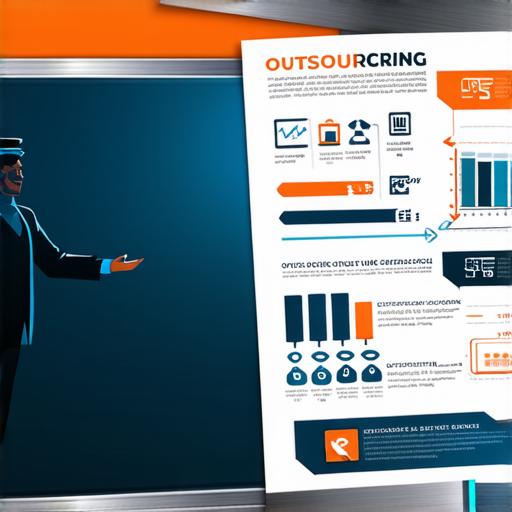What is outsourcing and how does it work?
Outsourcing refers to the practice of delegating tasks or responsibilities to third-party vendors or providers, rather than performing them in-house. This can involve everything from accounting and administrative tasks to more specialized functions such as software development or marketing services.

One of the main reasons for outsourcing is cost savings. By outsourcing certain tasks to a vendor, a company can reduce its labor costs and overhead expenses, which can help improve profitability and increase overall competitiveness. Additionally, outsourcing can also provide access to specialized expertise or resources that may not be available in-house.
Outsourcing can take many different forms, depending on the specific tasks or functions being delegated. For example, a company may outsource its payroll and HR functions to a vendor, or it may outsource its software development work to a team of developers located in another country.
One common misconception about outsourcing is that it always involves sending jobs overseas. However, this is not the case. While it is true that many companies do outsource tasks to vendors located in other countries, there are also many vendors located within the same country or even within the same city as the company itself.
Benefits of Outsourcing
1. Cost savings: As mentioned earlier, one of the main benefits of outsourcing is cost savings. By delegating tasks to a vendor, a company can reduce its labor costs and overhead expenses.
2. Access to specialized expertise: Vendors may have specialized expertise or resources that are not available in-house. This can help a company gain access to new ideas and perspectives, and improve overall performance.
3. Improved efficiency: Outsourcing certain tasks can free up employees to focus on more high-level or strategic work, which can help improve overall efficiency and productivity.
4. Increased flexibility: By outsourcing certain tasks, a company can be more flexible in terms of its resource allocation and staffing needs. This can help it respond more quickly to changing market conditions or customer demands.
Drawbacks of Outsourcing
1. Loss of control: One of the main drawbacks of outsourcing is the potential loss of control over certain aspects of a company’s operations. By delegating tasks to a vendor, a company may be less able to directly manage those tasks and ensure that they are performed to its satisfaction.
2. Security concerns: There may be security concerns associated with outsourcing, particularly if sensitive data or intellectual property is being sent to a third-party vendor located in another country.
3. Communication challenges: Communication can be challenging when working with vendors located in different time zones or countries. This can make it difficult to ensure that tasks are performed to the company’s satisfaction and that there is clear communication between the company and the vendor.
4. Dependence on third-party vendors: Outsourcing can create a dependence on third-party vendors, which can be risky if those vendors go out of business or are unable to perform their tasks to the company’s satisfaction.
Case Study: XYZ Corporation
XYZ Corporation is a manufacturing company that was struggling with declining profits and increased competition in the market. The company’s management team decided to outsource its accounting and HR functions to a vendor located in another country, in order to reduce labor costs and improve overall efficiency.
Over the course of the outsourcing arrangement, XYZ Corporation saw significant cost savings and improved efficiency in those areas. However, there were also some challenges associated with the outsourcing, particularly in terms of communication and security concerns. The company had to work closely with the vendor to ensure that tasks were performed to its satisfaction, and there were some initial miscommunications and misunderstandings.
